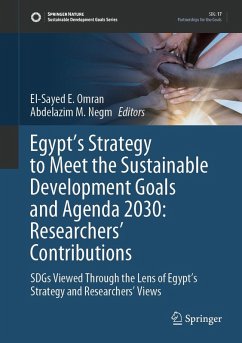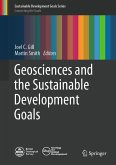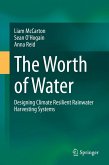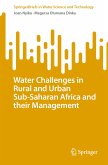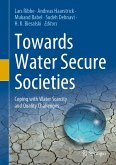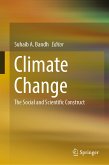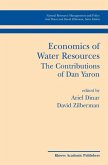In order to address these challenges, Egypt relies heavily on the SDGs, which are aimed at transforming our world. Although there is an urgent need for a drastic change in the way we use the Earth, the question arises as to whether the SDGs are sufficient to facilitate such a transformation. This book explores the key environmentally related Sustainable Development Goals (SDGs) and offers a cutting-edge assessment of current progress with a view to reaching these objectives by 2030. The book highlights some of the key findings and ideas for how research may help achieve the 17 Sustainable Development Goals in enterprises. The book provides a useful framework that can help and aid the Egyptian government to assess the many goals and targets outlined in the 2030 Agenda. The analysis of Egypt can be used as a blueprint for other developing nations and globally in order to guide policy toward achieving the SDGs. Covering food security, water resilience, climate change, agronomics, rural life, environmental impact assessment as a toolfor measuring the achievement of the goals, Egyptian education, the COVID-19 pandemic, cultural and societal dimensions, this book will be of great interest to students and scholars of sustainable development and climate change, as well as practitioners and policymakers involved in sustainable development and disaster management.
Dieser Download kann aus rechtlichen Gründen nur mit Rechnungsadresse in A, B, BG, CY, CZ, D, DK, EW, E, FIN, F, GR, HR, H, IRL, I, LT, L, LR, M, NL, PL, P, R, S, SLO, SK ausgeliefert werden.

